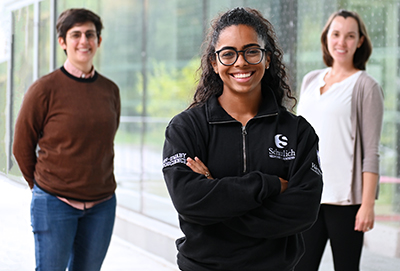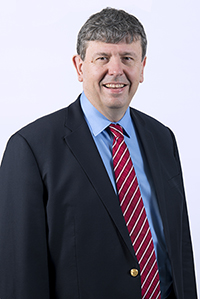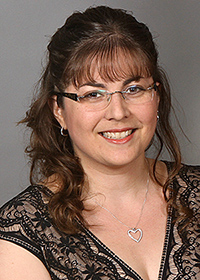Social Accountability: Holding ourselves accountable
At Schulich Medicine & Dentistry, advancing equity, diversity, and inclusion (EDI) is more than a moral aspiration. It’s a foundational building block in the mission to educate socially responsible leaders in human health.
The School’s newly minted Strategic Plan places a renewed focus on social accountability, with the aim of cultivating a respectful, inclusive environment for all faculty members, trainees, students, and patients. From department chairs to graduate students, the community is rising to the challenge.
Building CR(EDI)T
 In January 2021, PhD neuroscience candidate Olivia Ghosh-Swaby spearheaded the creation of CR(EDI)T—the student-led Council on Reforming Equity, Diversity, and Inclusion for Trainees. Twice a month, Ghosh-Swaby chairs a cross-department meeting to identify tangible strategies for making Schulich Medicine & Dentistry more supportive for graduate students and post-doctoral trainees.
In January 2021, PhD neuroscience candidate Olivia Ghosh-Swaby spearheaded the creation of CR(EDI)T—the student-led Council on Reforming Equity, Diversity, and Inclusion for Trainees. Twice a month, Ghosh-Swaby chairs a cross-department meeting to identify tangible strategies for making Schulich Medicine & Dentistry more supportive for graduate students and post-doctoral trainees.
According to Ghosh-Swaby, CR(EDI)T’s mission goes beyond well-known barriers for women and members of marginalized groups in medical research. In addition to working toward greater diversity and representation in trainee recruitment and development and advocating mandatory EDI training for all staff and trainees, CR(EDI)T’s leaders are deeply committed to connecting their peers with mental health and wellness resources.
“Graduate students are under intense pressure to perform,” said Ghosh-Swaby, “and the academic system isn’t friendly to marginalized groups or those who live with chronic illness, mental health conditions, and other barriers to learning.”
Earlier this year, CR(EDI)T surveyed close to 300 students and trainees about the unique challenges they face at the School. Based on the results, CR(EDI)T’s leaders are in the process of formulating an evidence-based list of strategic recommendations. They have also hosted several well-attended events, including a panel on reforming EDI in health care at the London Health Research Day. Soon, they will release a learning module that highlights a brought range of EDI themes, including sex and gender considerations in medical research, Indigenous pedagogy, and unconscious bias.
“Our group is committed to showing up and asking hard questions,” said Kasey Van Hedger, PhD, a postdoctoral scholar who acts as an advisor for the initiative. “There is a real sense of urgency for students and trainees because we’re not at the School for very long. We want to see structural change happen now, not in 10 or 20 years.”
Pictured: Alex Levine, PhD, Olivia Ghosh-Swaby, PhD Candidate, and Kasey Van Hedger, PhD
Introducing GEDI
 At a departmental level, issues surrounding EDI have moved to the top of the agenda. In the Department of Surgery, Dr. Emil Schemitsch and his staff have created a Gender, Equity, Diversity and Inclusion (GEDI) initiative in an effort to transform a sphere of medicine that has been relatively exclusive into an inclusive space.
At a departmental level, issues surrounding EDI have moved to the top of the agenda. In the Department of Surgery, Dr. Emil Schemitsch and his staff have created a Gender, Equity, Diversity and Inclusion (GEDI) initiative in an effort to transform a sphere of medicine that has been relatively exclusive into an inclusive space.
“In an area of medicine that is always changing and innovating, it’s absolutely critical to have diverse voices and perspectives,” says Dr. Schemitsch. “Without focusing on EDI, we have blinders on. We’re missing an opportunity to take surgery to the highest level it can possibly be and achieve our fullest potential.”
Women have comprised half of Canadian medical school classes since 1996, but current literature demonstrates that women faculty members are not recruited, promoted, or appointed to leadership roles at the same rate as men. Barriers to advancement are often subtle and unspoken, ranging from gender bias in research to a lack of women mentors and exclusionary social practices related to education and career development.
Created in 2020, the GEDI Committee in the Department of Surgery aims to identify structural and systemic barriers, promote a positive and inclusive culture, and generate opportunities for collaboration and scholarship in the EDI field. In addition, all of the Department of Surgery’s governing committees seek to advance equity through measures such as regular discussion of the topic at meetings, creation of a new merit award for EDI, directed funding support for new initiatives, and declaration of equity considerations in internal research grant applications.
 “While gender-related concerns in surgery initially sparked the creation of the GEDI Committee, our work embraces the rights and dignity of all marginalized Canadians, such Black, Indigenous and People of Colour and member of the LGBTQ+ community,” added Dinah Frank, Manager of the Department of Surgery, who is currently completing a Doctorate of Education with a focus on increasing the representation of women faculty and leaders in academic Surgery. “We have an obligation to pursue equity and social justice in academia and health care.”
“While gender-related concerns in surgery initially sparked the creation of the GEDI Committee, our work embraces the rights and dignity of all marginalized Canadians, such Black, Indigenous and People of Colour and member of the LGBTQ+ community,” added Dinah Frank, Manager of the Department of Surgery, who is currently completing a Doctorate of Education with a focus on increasing the representation of women faculty and leaders in academic Surgery. “We have an obligation to pursue equity and social justice in academia and health care.”
Dr. Schemitsch has witnessed significant progress within his department, which saw its first three women promoted to the rank of Professor in 2020, but he recognizes the ground left to cover. “Embedding the principles of EDI into every facet of our operations and making it part of our culture requires intense, sustained effort,” he says. “We’re encouraged at the momentum that is building, but we’re not there yet. We have work to do.”







